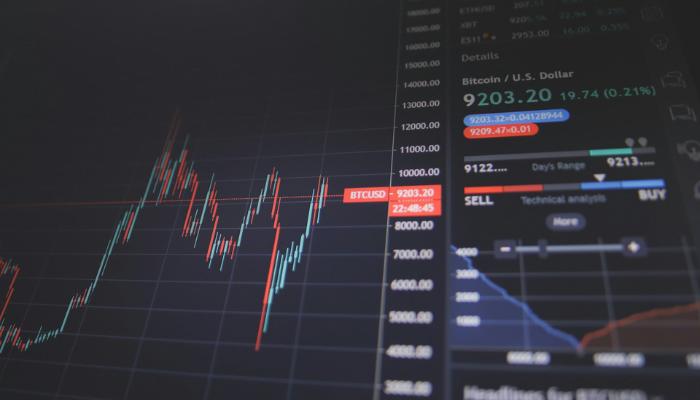How international financial markets work
International financial markets are the backbone of the global economy, connecting countries, companies and investors in ways that affect virtually every aspect of our economic lives.
Advertising
From currency exchange to stock trading and the advancement of financial technologies, these markets offer opportunities but also present considerable risks.
Advertising
In this article, we will explore each of the fundamental aspects of these markets, offering an in-depth look at how they work and impact the world economy.
Currency Exchange
Currency exchange, known as Forex or foreign exchange, is crucial for international trade and investment. Each country has its own currency, and exchanging these currencies is essential for conducting international business and travel. Here is how a typical currency exchange transaction works:
- Identifying the Need: A company in the USA wants to purchase goods from Germany, where the Euro is the local currency.
- Checking Exchange Rates: The company checks the current exchange rate between the US dollar (USD) and the Euro (EUR) to determine the cost.
- Conducting the Transaction: The exchange from dollars to euros is made through a financial institution or an online exchange platform.
- Transfer and Conversion: The dollars are converted into euros, and the payment is sent to the German supplier.
Advertising
These transactions help establish global exchange rates, which fluctuate based on a series of economic, political, and market factors.
Stock Market
The global stock market allows companies to raise capital by selling parts of their operations to the public in the form of shares. This market is a crucial barometer for economic health, indicating not just the state of listed companies but also providing insights into global economic conditions.

Investors around the world buy and sell shares on exchanges like the NYSE, Nasdaq, London Stock Exchange, among others. Investors can make money from the appreciation of shares or receive dividends, a share of the company’s profits.
Foreign Exchange Market (Forex)
Forex is the largest financial market in the world, with daily trading volume exceeding 6 trillion dollars. It operates 24 hours a day, five days a week, facilitating international trade and investment. Participants include:
- Central Banks: Use Forex to adjust monetary policies, influencing their own currencies to control inflation or stimulate growth.
- Financial Institutions: Banks and other institutions trade currencies to balance portfolios or hedge against financial risks.
- Individual Investors and Speculators: Seek to profit from fluctuations in currency values.
Financial Derivatives
Derivatives are financial instruments whose value is derived from an underlying asset, such as stocks, currencies, or indices. They are widely used for:
- Hedging: Protection against adverse price movements.
- Speculation: Taking advantage of price movements without necessarily owning the underlying asset.
- Accessing Difficult Markets: Facilitating investments in markets or asset classes that may be otherwise inaccessible.
Common examples of derivatives include futures, options, and swaps.
International Financial Regulation
Regulating international financial markets is essential to ensure their stability and transparency. Organizations like the IMF, the World Bank, and the World Trade Organization, along with national financial regulators, work together to create norms that keep the financial system safe and fair.
They monitor financial activities, enforce regulations, and intervene when necessary to prevent financial crises.
Financial Globalization
Financial globalization refers to the increased interconnectedness of global markets. This phenomenon has allowed for:
- Greater Market Efficiency: Through competition and broader capital distribution.
- Risk Diversification: Enabling investors to spread their investments across various markets.
- Financial Innovation: New financial products and services can be developed and offered globally.
However, globalization can also lead to the rapid transmission of financial shocks between nations, requiring constant vigilance from regulators.
Foreign Investment
Foreign investment is vital to global financial markets. It allows capital to flow to where it is most needed, promoting growth and development.
This investment can be direct, where foreign companies establish operations or acquire local businesses, or it can be in the form of a portfolio, where investors buy shares or bonds of foreign companies and governments.
Algorithmic Trading
Algorithmic trading uses computer algorithms to execute buy and sell orders in the market. This type of trading can:
- Increase Liquidity: Algorithms operate at high speed, buying and selling frequently.
- Reduce Market Impact: Large orders can be broken down into smaller ones to minimize the impact on market prices.
Global and Economic Events
World events, such as political crises, pandemics, or natural disasters, can cause significant volatility in international financial markets. Investors and regulators must continuously monitor these events to mitigate risks and adjust strategies as necessary.
Financial Technology (Fintech)
Fintechs have revolutionized international financial markets, introducing innovations like blockchain and cryptocurrencies that increase transparency and reduce costs. These technologies are redefining what is possible in the financial sector, offering new opportunities for investors and consumers.
International financial markets are complex and interconnected, directly influencing economies and individuals around the world.
Understanding how these markets work is essential for anyone involved in economic activities, whether investing directly or simply tracking how global changes can affect their personal finances.
The opportunities are vast, but the risks are significant, requiring education, vigilance and prudence to successfully navigate this globalized world.





